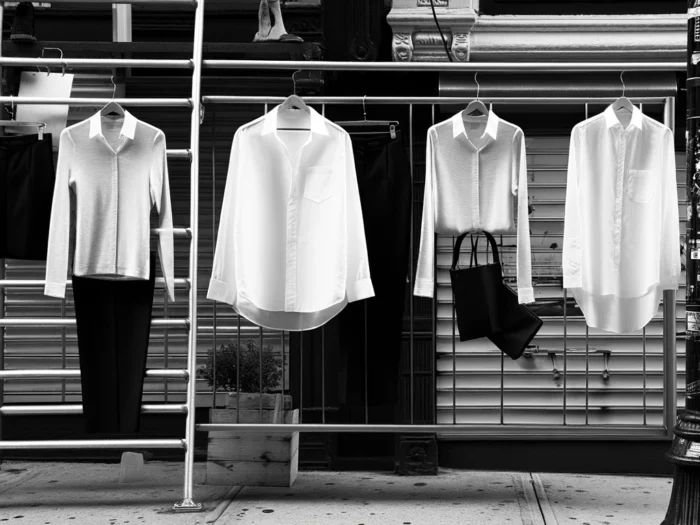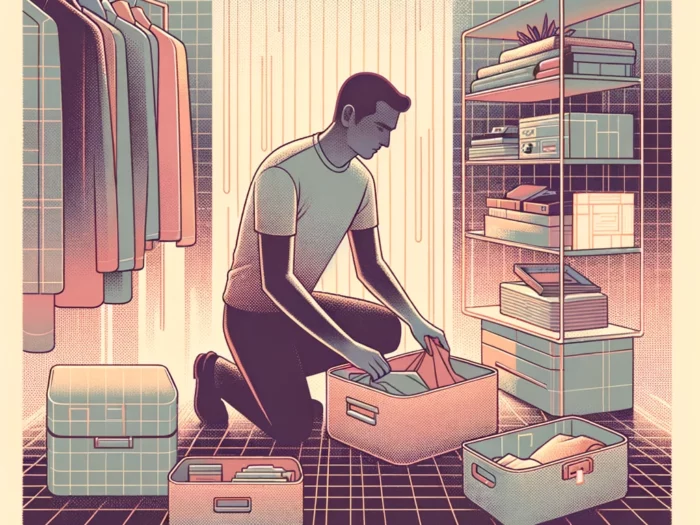Many people who’d like to live a more minimalist lifestyle fail. They fail because they can’t get to first base of minimalism. They struggle at letting stuff go. I’ve found it easier to let stuff go when I create specific criteria. This post explains 7 factors to consider when letting stuff go.
Letting stuff go is hard. We’ve all lost loved ones, friends, pets, and jobs. It’s hard to let go of people and things we love. Unfortunately, many people have difficulty letting go of their excessive possessions, too. This is due to being emotionally connected to stuff. Do you create emotional ties to material things? Why?
Get great cleaning tips with The Cleanup Queen.
I Used To Keep Everything
I had boxes of stuff, essentially useless, dead weight. After a couple of long-distance moves, I learned how to start letting stuff go. I began to critically evaluate what was really needed to live comfortably. I discovered that more than half of the things I owned were unnecessary. Here’s how decided what to keep and what to let go.
How To Decide When To Let Stuff Go
- Usefulness: Does the item serve an immediate and regular purpose? If you never make juice, do you really need a juicer? If you have enough bedding to stay warm on the coldest night, do you need a dozen extra blankets in your closet? If it’s not being used, it’s not really useful.
- Need: We often convince ourselves that we need things that are unnecessary. Do you really need more than a few pairs of shoes. Do you need a small kitchen appliance for every cooking process? I have no coffee maker. I simply boil water and do pour-overs. I have no electric mixer. I simply use a spoon.
- Value: A piano is valuable to me. It’s a musical instrument that brings hours of joy into our home. It brings people together in song. It creates memories. I find little value in gold and diamonds. Value should be measured in happiness and contentment, not monetary worth.
- Weight: A piano is heavy. Why not have an electric keyboard? Because the beauty of the sound of an acoustic piano is worth its weight in gold. On the other hand, piles of old papers are worthless to me. I keep very few old papers. I only keep a few select books. Heavy stuff weighs you down.
- Durability: Awhile ago, I posted about my best clothing purchase ever. If something is very durable it’s probably worth keeping. Many of today’s products are made to be thrown away. Don’t buy those products. Buy for durability and keep the things that can be used again and again.
- Practicality: In the kitchen, many people have different pans for cooking different meals. I’ve found that I cook most meals in a handful of pots and pans. When one item works well for several functions, it’s practical. Keep it and let go of the unused items.
- Memories: People often keep things for their sentimental value. I have a few things from my childhood. I’m saving a few of Annie’s things. The key is to limit what you keep. If you keep too much, it actually loses sentimental value. Only keep the items that mark special occasions or symbolize personal success. Even then, be selective.
Letting Stuff Go Isn’t Easy, But It Gets Easier
When you create a criteria for what’s worthy of keeping, you’ll begin to see what’s not needed. Let the unneeded things go. In time, the decision process will become much easier.
I go through my belongings several times a year. I always find things that I no longer use or need. I let those things go. It feels good to give my unused items to others. It feels good to know that I’m not tied down to my possessions. It feels good to let stuff go.













